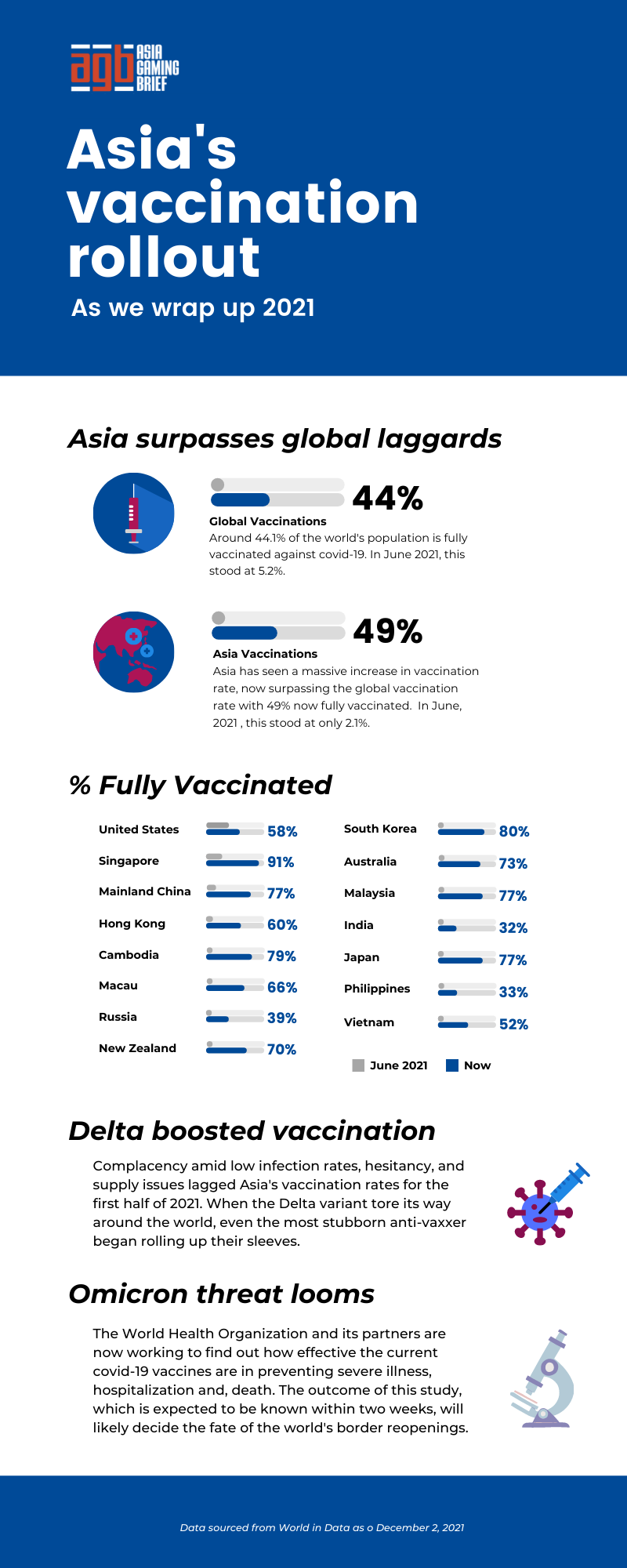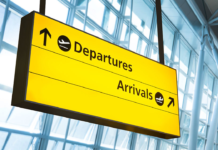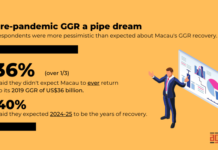
Asia has now surpassed the globe in full-vaccination rates, with 49 percent of Asia’s population now fully vaccinated against Covid-19, compared to only 44 percent globally.
Whilst the region lagged initially due to supply issues and vaccine hesitation, the Covid-19 Delta strain, which wreaked havoc across the globe in Q2 and Q3, appears to have accelerated vaccination rates with fears of its unstoppable spread and risk to health.
More recently, the Omicron variant has begun to rekindle fears, even amongst the vaccinated. Early reports, however, appear to show that the new variant is tamer than its predecessor, despite it being much more contagious.
Looking at the figures from World in Data, Singapore continues to lead Asia in vaccination rates, with 91 percent of the population now fully vaccinated against the virus.
Its worth noting that Vietnam and Japan, both of whom had low-single-digit vaccination rates in June, are now 52 percent and 77 percent fully vaccinated only five months later.
Russia, the Philippines, and India, however, continue to lag behind their neighbors. Though it is worth noting that Metro Manila, within the Philippines, is now at 94 percent fully vaccinated.
Last week, Asia Gaming Brief summarised “what we know” so far about the new variant.
Here are some of the main points:
- B.1.1.529, or Omicron, was first reported to the WHO by South African health authorities on November 24, 2021, though some experts suggest that the variant was most likely flying under the radar in some underdeveloped countries for a period.
- It was detected after scientists researched a sudden exponential rise in daily Covid-19 cases across the country, from 274 cases on November 11 to 1,000 only a fortnight later.
- The WHO has classified Omicron as a “variant of concern” due to its large number of mutations – around 30 in the spike protein – which could improve its transmissibility.
- So far no deaths associated with the Omicon variant have been reported.
- The Delta variant however, is still the dominant strain, accounting for 99 percent of sequences submitted to the biggest public database.
- The Omicron variant has already been confirmed in Hong Kong, Netherlands, Denmark, Belgium, Botswana, Germany, Israel, Italy, UK, Canada, Australia, Czech Republic, Austria and South Africa – most of which are single digit cases detected at the border before entry.
- WHO said the overall risk related to the new variant is “very high” but admits that the evidence for this assesment contains considerable uncertainty and will be updated as more information becomes available.



![Galaxy & SJM EBITDA margins tell two different stories [Infographic] Macau Gaming industry, EBITDA,1Q22](https://agbrief.com/wp-content/uploads/2022/06/2021-2022-Q1-EBITDA-margin-218x150.png)
![Macau analyst expectations still too rosy, say observers [Infographic] Macau](https://agbrief.com/wp-content/uploads/2022/05/Macau-218x150.jpg)
![Asia swipes right to quarantine-free travel [Infographic] Asia, Tourism, travel](https://agbrief.com/wp-content/uploads/2021/04/hainan_1-218x150.jpg)




![Tracking Macau CNY visitation [Infographic] Macau, Chinese New Year](https://agbrief.com/wp-content/uploads/2022/02/Macau-Chinese-New-Year--218x150.jpeg)



















